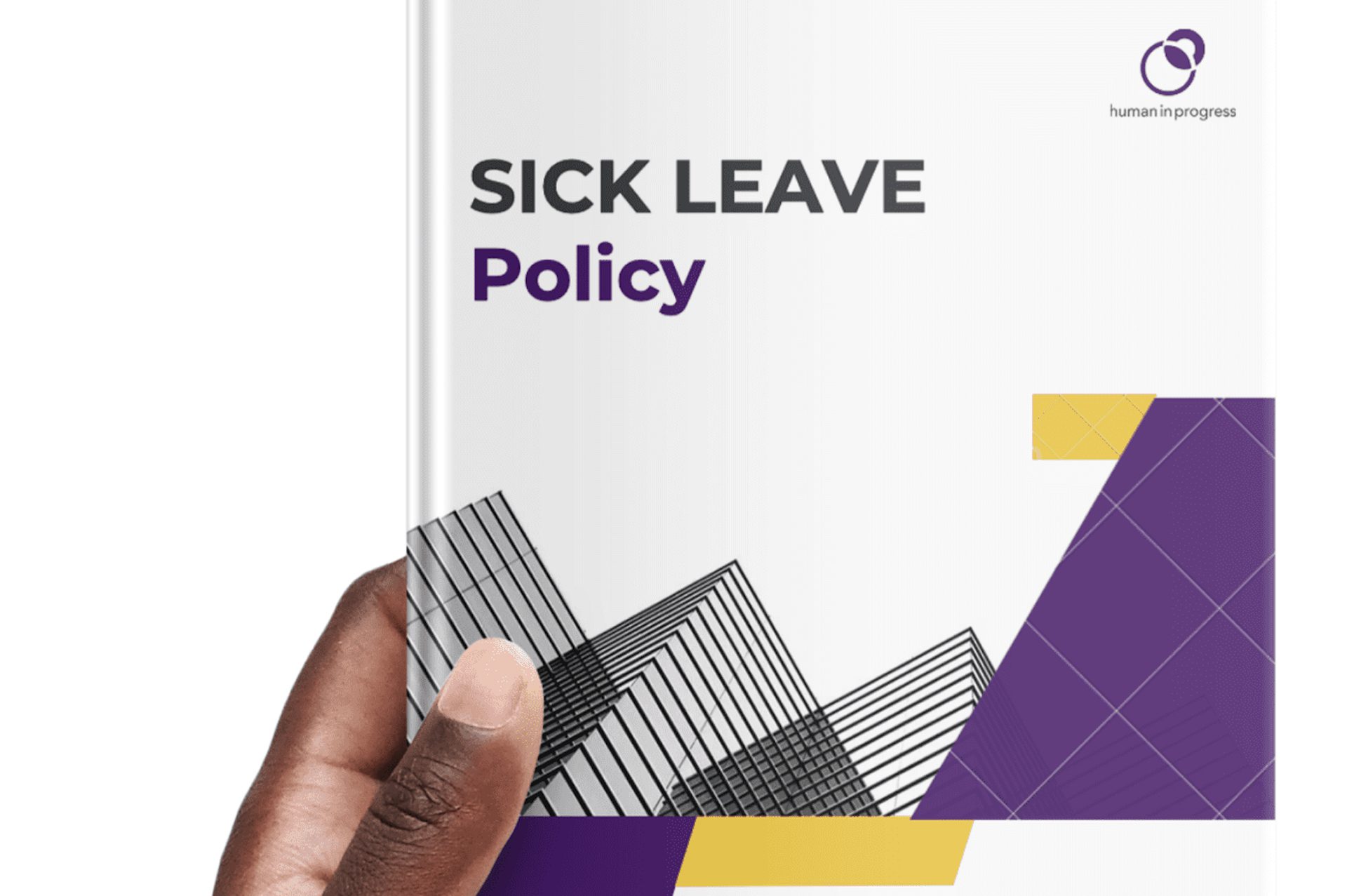Understanding the dynamics of employment law in the Netherlands and the relevance of these regulations is crucial for employers, employees, and HR professionals.
Employment Law in the Netherlands encompasses various aspects, including the Working Conditions Act, Working Hours Act, minimum wage per hour, employee benefits, employment and dismissal procedures, Dutch Works Councils Act, Dutch Whistleblower Protection Act, and the General Data Protection Regulation.
Table of Contents
How a Law Comes into Force in the Netherlands
Proposal and Draft
Laws in the Netherlands typically begin with a proposal, originating from various sources such as government bodies, political parties, or interest groups. When ministers intend to regulate rules and procedures legally, they instruct their officials to create a legislative proposal. Officials involve relevant stakeholders (e.g., legal experts, labour unions) and prepare a Memorandum of Explanation, outlining the purpose and details of the proposal.
Ambassadorial Preparation
The proposal moves to the ambassadorial preparatory stage, involving discussions among high-ranking officials. Subsequently, it proceeds to the sub-cabinet, an assembly of ministers with subject matter expertise.
Parliamentary Process
Generally, the government (the King and ministers) submits a legislative proposal, known as a government proposal.
- Following the sub-cabinet discussions, the proposal undergoes deliberation in the Ministerial Council, involving all ministers. If the council approves the proposal, the text is sent to the Council of State for advice.
- The Council of State reviews the proposal’s feasibility and ensures it aligns with the constitution. While under consideration by the Council of State, the proposal remains confidential.
- The proposal, along with supporting documents, goes to the Second Chamber, including the Memorandum of Explanation, Council of State advice, a subsequent report, and the Royal Message. The King presents the proposal to the Second Chamber, and the entire process becomes public. In the Second Chamber, the proposal is initially discussed in a specialised committee before the minister defends it in a plenary debate. A vote follows on proposed amendments and, subsequently, on the entire proposal. If approved, it moves to the First Chamber.
- The First Chamber reviews the proposal and can only accept or reject the proposal, followed by a plenary debate and a vote.
Royal and Ministerial Endorsement
Upon approval by both chambers, the King and the responsible minister sign the law. After publication in the State Gazette, the law comes into effect.
Dutch Civil Code – The Book of Law in the Netherlands
The Dutch Civil Code [Burgerlijk Wetboek, BW] is the primary legal code governing civil law matters in the Netherlands. It covers a wide range of topics, divided into 10 books regarding obligations and contracts, family law, property law and private laws.
The ten books of the Dutch Civil Code are:
- Book 1 Dutch Civil Code: Natural Persons and Family Law
- Book 2 Dutch Civil Code: Legal Persons
- Book 3 Dutch Civil Code: Property Law
- Book 4 Dutch Civil Code: Law of Succession
- Book 5 Dutch Civil Code: Property Rights
- Book 6 Dutch Civil Code: Obligations Law
- Book 7 Dutch Civil Code: Particular Agreement
- Book 8 Dutch Civil Code: Transport Law
- Book 9 Dutch Civil Code: Intellectual Property
- Book 10 Dutch Civil Code: International Private Law
Book 7 of the Dutch Civil Code is related to Particular Agreement and includes employment contracts requirements. This book plays a crucial role in shaping the legal framework for employment relationships in the Netherlands. Understanding both employer obligations and employee rights is crucial for compliance with Dutch employment law.
Employment Law in the Netherlands
Dutch employment law governs the rights and obligations of employers, employees, and temporary workers in the Netherlands, it consists of the following areas:
- Working conditions (Health & Safety)
- Working hours
- Salary, minimum wage
- Holiday allowance and vacation days
- Employment and dismissal procedures
- Employee benefits
- Works Council
- Whistleblower protection
- Data protection
Health & Safety in the Netherlands – Dutch Working Conditions Act
The Working Conditions Act [Arbeidsomstandighedenwet/Arbowet] governs the occupational health and safety Netherlands standards and regulations.
It outlines the rights and responsibilities of both the employer and employees regarding the working conditions.
Health & Safety Policy
Employers are required by law to have in place a Health & Safety policy providing a safe and healthy working environment for all employees, visitors, contractors, and any other persons affected by the business operations.
Both the employer and employees share a legal responsibility to work together in establishing a safe and healthy workplace.
The purpose of this Health & Safety Policy is providing guidelines and establishing a genuine culture of health and safety within the workplace and fostering such a culture.
It will inform employees about health and safety protocols and procedures, measures, working with company equipment, machinery, and computer screen work.
Risk Inventory & Evaluation (RI&E)
Secondly the Risk Inventory & Evaluation (RI&E) [Risico Inventarisatie & Evaluatie], assessment is also mandated by law for employers (even with only one employee) and essential for fulfilling the legal obligation of ensuring employee health and safety.
Emergency Response Officers
The employer is also obliged to seek assistance of employees who have been designated as Emergency Response Officers (ERO) acting effectively in the event of an emergency at the office location.
Confidential Counsellor
In conjunction companies need to protect employees against sexual harassment, aggression, and violence and to pay attention to undesirable behaviour, referred to in the law as Psychosocial Occupational Stress (PSA) [Psychosociale arbeidsbelasting].
In 2023, a new bill was passed with a convincing majority vote in the Dutch parliament, requiring employers with more than 10 employees to appoint a Confidential Counsellor, in Dutch Vertrouwenspersoon.
The Confidential Counsellor is a designated professional providing confidential support to employees facing issues within the workplace.
Prevention Officer (Health & Safety Officer)
The meaning of the Prevention Officer Netherlands [Preventiemedewerker] is to focus on ensuring day-to-day workplace health and safety.
Prevention officers collaborate with management, employees, the Works Council, HR, and external stakeholders such as the Occupational Health & Safety Service provider.
According to the Dutch Working Conditions Act [Arbeidsomstandighedenwet/Arbowet] every company must have at least one (1) Health and Safety Officer. The act does not state the exact number of health and safety officers the employer will need in relation to the size of the company.
Grievance Policy and Procedure
The purpose of this document is to outline the procedure for staff (employees, contractors, and consultants) to raise a complaint or formal grievance.
It describes the process, stages in case of a compliant such as criminal activity, danger to health and safety, breach of legal obligations).
Additionally, the steps are provided in case of raising a formal grievance in case of discrimination, sexual harassment, aggression, violence, or bullying.
Bullying & Harassment Policy
These guidelines and procedures outline the definitions of bullying and harassment in the workplace, along with examples of unacceptable behaviour.
The policy is closely associated with the role of the confidential counsellor and the procedure outlined in the Grievance Policy & Procedure.
Sick Leave Policy
In addition to the Health & Safety Policy, it is imperative for a company to establish a comprehensive Sick Leave Policy.
The law sets all sorts of obligations for both the employee and the employer to facilitate as much as possible the speedy recovery of the employee including engaging the services of an Occupational Health & Safety Service provider [Arbodienst].
A well-crafted Sick Leave policy in the Netherlands is not just a legal necessity; it is a strategic guide to navigate the complexities of sick leave management in accordance with the Permanent Incapacity Benefit (Restrictions) Act.
Code of Conduct
The code of conduct outlines the rules, principles, and guidelines on expected behaviour and ethical standards within the organisation.
It serves as a framework for how employees should conduct themselves in various situations and interactions, both internally with colleagues and externally with clients, customers, and stakeholders.
A typical code of conduct covers a wide range of topics, including honesty and integrity, respect for others, confidentiality, conflicts of interest, compliance with laws and regulations, use of company resources, and professional conduct in the workplace.
Working Hours & Overtime – Dutch Working Hours Act
The Working Hours Act regulates overtime, working hours, rest periods, breaks and night shifts under employment in the Netherlands. These rules are aimed to protect employee’s health, safety, and welfare and to make the combination work and family life easier. In the Working Hours Act there are rules regarding:
- working hours
- rest periods
- breaks
- night shifts
- service calls
- working on Sunday
- on call duty and on-site duty calls
For the brochure on the Working Hours Act in English published by the Dutch government, click and download the Brochure Working Hours Act.
Flexible Work Act
The Dutch Flexible Work Act [Wet Flexibel Werken] entitles the employee who is employed for at least 26 weeks to request amendment of (i) their agreed working hours (e.g., from fulltime to part time or vice versa), (ii) the working location or (iii) the daily working hours.
The employee must give at least two months’ notice, and the employer must respond to the request no later than one month before the proposed date.
Minimum Wage and Minimum Holiday Allowance Act
Salary – Minimum Wage Netherlands per Hour
Commencing January 1, 2024, the statutory minimum wage is established on an hourly basis for all industries in the Netherlands.
All employees aged 15 and above are required to receive at least the prevailing hourly minimum wage.
To establish the salary per job position in a company, a salary benchmarking, also referred to as compensation benchmarking could be considered. It involves comparing job descriptions and pay ranges from one company to similar positions in other organisations. This process provides insight into the average or market salary for each job role.
Holiday Allowance & Paid Holidays Netherlands
The labour law in the Netherlands requires that all employees receive a minimum of four weeks paid annual vacation each year: the Non-Statutory Holidays [Wettelijke vakantiedagen].
Additionally, there are Non-Statutory Holidays [Bovenwettelijke vakantiedagen], which are at the discretion and decision of employers. Both statutory and non-statutory holidays have expiration dates to respected by law.
The holiday allowance is equated to 8% of an employee’s salary, and more information is available in our blog FAQs: Holiday Allowance & Paid Holidays in the Netherlands.
Leaves of Absence – Dutch Work & Care Act
Employee leaves of absence in the Netherlands, paid and unpaid time off, is governed by the Work and Care Act [WAZO]. The statutory leaves of absence in the Netherlands are pregnancy and maternity leave, partner/paternity leave, parental leave, calamity leave, short-term care leave, long-term care leave (such as Informal Care Leave), adoption leave and unpaid leave/sabbatical leave.
Employee Benefits Netherlands
Employee benefits in the Netherlands are the non-wage compensation provided to employees in addition to the regular salary. These benefits are offered by employers as part of their overall compensation package.
It can include a pension scheme, travel and mileage allowance, insurances regarding income protection disability, (sales) bonus, employee assistance programmes and other forms of benefits.
More market practice examples of employee benefits can be found on HRMNetherlands.com.
Employment Contracts & Dismissal Procedures under Dutch Employment Law
Employment contract law play a crucial role in the relationship between employers and employees in the Netherlands. According to the Dutch Civil Code, all fixed-term and permanent employment contracts must be documented, outlining details such as job title, responsibilities, and salary to ensure legal adherence.
The extension of a fixed term employment contract or conversion into a permanent employment contract is also bound by legal rules and procedures.
In the Netherlands, termination of employment is a sensitive issue governed by complex employment laws. According to Dutch law, if the employment contract is terminated or if an employee is being made redundant, they are entitled to a severance payment [transition fee] based on their salary and years of service.
Laws prevent unfair firings and discrimination based on age, gender, or ethnicity.
When negotiating termination of employment, it is important to consider the statutory notice periods, which vary based on the length of employment.
Works Council Netherlands – Dutch Works Councils Act
In the Netherlands the Works Council [ondernemingsraad, OR] is an internal body representing employees, promoting, and protecting the interest of the employees. The Works Council under Dutch law has consultation and approval rights in respect of certain significant proposed management decisions and employment. The rules concerning staff representation are described in the Dutch Works Councils Act.
A Works Council is not the same as a Trade Union. The trade unions are (independent) organisations, exclusively representing members within a certain industry or business sector. The Works councils represent all employees in the company. The Trade Unions are negotiating Collective Labour Agreements of employment.
Employment relations in the Netherlands are tightly governed by trade unions and collective bargaining agreements. It is crucial for businesses to comprehend their legal responsibilities within these frameworks, as non-compliance may lead to fines or sanctions.
Data Protection Netherlands – General Data Protection Regulation
In the Netherlands, companies must protect employees’ personal data according to the law. Employers need to follow specific rules outlined in the General Data Protection Regulation (GDPR) as a lot of personal data of their employees are processed and stored in employee files.
It is essential for employers to know which documents to keep in the employee records under the law.
Whistleblowing – Dutch Whistleblower Protection Act
The revised Dutch Whistleblower Protection Act is aimed at protection for whistleblowers, ensuring those reporting wrongdoing are protected.
It shifts the burden of proof to employers, broadens the protection for whistleblowers, and mandates stricter internal reporting rules.
Any employer with at least 50 employees in the Netherlands is obliged to draw up a Whistleblowing Policy for reporting a suspected abuse within the organisation.
Frequency of Labour Law Changes
A Dutch employment law or a general administrative measure in the Netherlands often comes into effect on January 1st or July 1st.
A ministerial regulation comes often into effect on January 1st, April 1st, July 1st, or October 1st.
In certain instances, the legislation could come into force by August 1st, such as when the European regulation Partner Leave and Parental Leave was introduced in 2022.
Power of Knowledge
In conclusion, understanding employment law in the Netherlands is vital for both employers and employees to ensure fairness and compliance. It fosters a positive work environment and contributes to economic stability and growth.
As experienced HR and employment law agency in the Netherlands, our company gives advice on all aspects of labour law and Human Resources.
Stay ahead of the curve with our free newsletter, delivering the latest updates and insights on labour law, employment trends, and workplace regulations directly to your inbox.
- In-depth analysis of evolving the latest employment law changes.
- International perspectives on employment regulations.
- HR consulting expert advice for HR professionals and employers.
- Timely updates on legislative changes.
Click the link to receive our free newsletter: SUBSCRIBE




